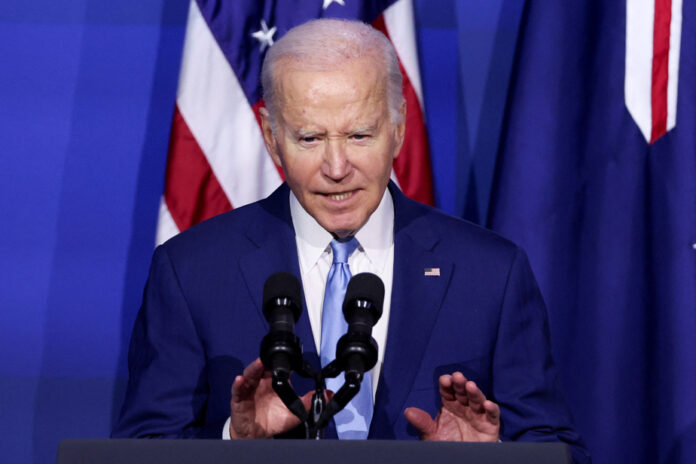(San Francisco) Trade talks between the United States and Asia-Pacific countries failed again this week, a setback for Washington as it seeks to gain more prominence in the region to combat the growing influence of China.
Free trade pacts, which have allowed the United States to build relationships around the world for decades, are no longer popular in the US Congress.
Instead, Joe Biden’s administration focused on more limited bilateral deals, aimed at boosting U.S. industry, and a more ambitious trade deal with Asian countries, which it launched in 2022.
But contrary to expectations, the Indo-Pacific Economic Framework (IPEF) did not fully take shape this week.
The IPEF seeks to facilitate trade between fourteen countries (South Korea, Japan, India, Australia, etc.), with the notable exclusion of China.
But this pact is increasingly contested, even among Democrats, who fear that it will harm them in the elections in 2024. Trade agreements are sometimes seen as potentially destructive for jobs in certain sectors.
Result: Negotiations on the trade side of the IPEF, the most controversial part, failed to reach a conclusion at the Asia-Pacific Economic Cooperation (Apec) summit in San Francisco.
A hard blow for Joe Biden, who was counting on a breakthrough to show China that the United States remains a major player in the region, even after the withdrawal in 2017 of his predecessor Donald Trump from the Trans-Pacific Partnership (TPP), a free trade agreement that former President Barack Obama proposed to his Asian allies.
The White House assured that the IPEF was not dead.
The American Trade Representative, Katherine Tai, for her part told the press that there had never been any question of “reaching a trade agreement in November”.
“We will continue to work on this,” she said.
Between the vacuum left by the United States and China’s signing of the Regional Comprehensive Economic Partnership (RCEP) with fourteen other Pacific countries, “there has been an imbalance” in favor of Beijing, commented Thibault Denamiel of the Center for Strategic and International Studies.
RCEP is the largest trade agreement in the world, measured by the Gross Domestic Product (GDP) of its members.
A new failure of the IPEF “would further damage the credibility of the United States as a trading partner in the future,” added Thibault Denamiel.
Although IPEF does not provide market access, participants hoped it would lead to greater U.S. engagement.
But after the failure of negotiations in San Francisco, prospects for progress are slim in the coming months as the 2024 US elections approach, said Wendy Cutler, vice-president of the Asia Society Policy Institute.
The lack of a deal “is a major setback for U.S. trade policy,” she said.
It is counting on Beijing’s strong trade agenda to push Washington to adopt a “bolder approach”, otherwise its influence risks being undermined as partners work with each other and with China.
For now, American Commerce Secretary Gina Raimondo has nevertheless welcomed the progress made in recent days with Apec members.
The IPEF will help set standards for businesses in countries that represent 40% of the global economy, in areas such as supply chains and green energy.
The leaders concluded agreements on climate, to support the transition to clean economies, and the fight against corruption with legally binding commitments, Gina Raimondo told the press after the discussions on Thursday.
They also agreed to create a ministerial council “to provide a sustainable forum” for cooperation, she said, while emphasizing that IPEF was “never intended to be a trade agreement.”
Officials also launched a fund to support climate projects and took steps to boost private sector participation.
At the Apec business leaders’ summit on Wednesday, Raimondo noted that the United States had been “largely absent” from the Asia-Pacific region in the five years before Joe Biden took office .
Washington now wants “to be a permanent, present and lasting partner in the region”, particularly on the economic level, she insisted.





